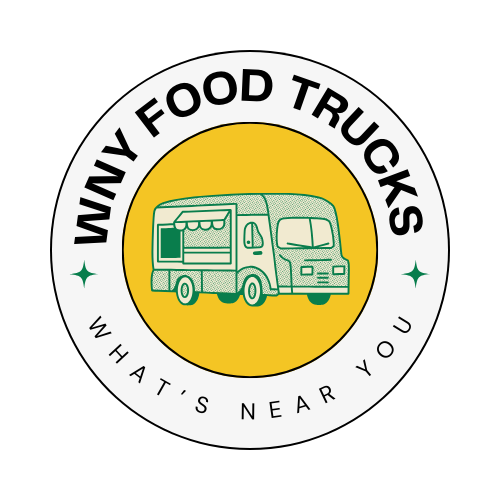
Today’s bride and groom want something different for their big day. If you’re looking for a casual, urban feel for your wedding, try a food truck! This Pinterest-board worthy trend brings the taste of home with Buffalo food trucks parked right outside your reception venue. Bring your guests a late night snack in the midst of drinking, dancing, and fun. This trend is totally one we can raise a glass to, but there are some things to take into consideration. Here are some things to keep in mind before bringing a food truck to your wedding.
Food trucks Are Considered Outside Catering
It is important to note that food trucks are outside catering. Many venues won’t allow outside catering or require you to choose a catering company off a list of preferred vendors. Even though your food truck is not using your venue’s kitchen or facilities, if they are not one of the caterers off the list, you may receive a big “No” when you inquire. Even if you do outside catering for your whole event, some venues require the catering companies to provide alcohol, which food trucks generally don’t do. You can have food trucks come later in the night after your formal dinner, but make sure that is communicated with and is approved by the venue.
Food Trucks and City Property
While there have been great strides in Buffalo with food trucks, there are still some places where they are not allowed to park. Local city-owned spots, like historic houses, regional parks, etc., may not allow food trucks on their property. This includes the parking lot or adjacent street even if they have an open catering policy. Always check with the venue and the city’s ordinance. A location may be perfect, but if it is on a narrow, residential street, you may not be allowed to have a truck.
Where Will the Trucks Park?
Always consider the size of food trucks, especially when their side doors are open. They’re much bigger than they seem. Most have a really wide turning radius and restrictions on hills they can traverse. It is important that trucks can actually get to your venue, let alone park and leave easily.
Once they’re at the venue, then you have to think about parking. If your venue has a parking lot, but a small number of spaces, you may have to sacrifice possible places for your guests to park their cars. You could encourage people to carpool, but would they actually listen to you? Probably not. Then you’ll have to hear about how your 80-year-old grandma had to park 3 blocks away for the rest of your life.
There is also the problem of trucks parking too far away from the reception area. Your guests don’t want to walk three minutes to get food (and neither does your 80-year-old grandma). You’ll receive a lot of complaints, especially if they have to stand around waiting in lines, and then walk back to their tables risking cold or spilled food. But then, you don’t want them too close to your tables because food trucks run on generators. Some can be quite loud and you want enough room for people to queue up and order.
You May Need More Than One Truck
It’s time. Your food truck has arrived and everyone is ready for some late night munchies. If you have one food truck and 150 guests, they may be waiting a while before they can start eating. At a food truck rally, you can avoid long lines by going to a different truck, but you can’t do that when there is only one truck. An easy way to prevent lines during the first wave is to provide variety with multiple trucks. If you choose to only have one truck, ask if they can make a small, specific menu. When people only have five or six options (instead of ten or twelve), they’ll order a little more quickly. The truck can also use prep time to make batches of their easier and quicker items, creating less work during the rush.
How Many Guests Do You Have vs How Many Will You Feed?
Most food trucks estimate the cost of their services based on how many they have to feed. There is also the overhead cost of operation, which includes the cost of travel, diesel to run their generators, and any other things like plates and utensils they need to provide, that is included in the cost per head. When in doubt, estimate a higher number than the actual number of guests you have. This accounts for people going back for a second round. So if you have two food trucks, make sure they each can feed about 75% of your guests. The extra 50% will cover anyone going back for a second time, or wants to order from both trucks.
Food Truck Cost
There is a big misconception that having food trucks at your wedding is cheaper than traditional catering. On paper, a catering company may look more expensive because some also supply the linens, dishes, silverware, and staff. With a food truck, you have to locate all those things yourself. Even with white, polyester tablecloths, disposable stuff to eat off of, and hiring our own staff, you may actually spend more than if you had gone with traditional catering. And that’s not even taking supplying alcohol and the bar necessities. Not to mention, the more guests you have, the more expensive all the extra costs are going to be, on top of the cost of the food.
The downline is, if having a food truck is the perfect addition to your wedding day, then you should do it. If you take all these things into consideration and are properly prepared, then you will be less stressed come your wedding day (Well, less stressed about the food), and more focused on having a good time.
